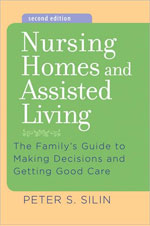Is Tom Cruise Irritating Your Bowels--Or Is It IBS?
I was just reading an article on Irritable Bowel Syndrome. in Sunday's Parade magazine. We don't get Parade in Canada, but it has been a Sunday supplement from at least the time I was growing up. I like to read it for the question and answer sections on totally useless, pop culture information that I shouldn't admit that I like to read.
Actually, as long as I am in a self disclosing mode, can I share something? I think life could be a lot easier if it were in question and answer kind of form. I love reading those columns--anything, I don't care if it is about cars, or Ann Landers, or Leather lovers, if it is in a column, I'll read it. Okay, so I'm shallow. One doesn't drown in shallow. I have my limits, however. Like I am not so shallow that I know the name of the town in Italy where there is a fifteenth century castle where Tom Cruise married Katie Holmes. ( Okay, so I know the rest, I just happened to glance at it while reading the editorials). Anyway, he probably had to imprison her to marry him. Otherwise she may have figured out how deep in she is ( as if the kid wasn't enough to be a clue) and run screaming the other way.
Anyway, where was I. Oh, yeah, irritatating bowels. Actually, not a big jump to Tom Cruise, if you think about it. But, back to our bowels.
The article was titled "Relief for Irritable Bowel Syndrome." In brief, it says that "researchers at Cedars-Sinai Medical Centre in Los Angeles found that rifaximin, an antibiotic often prescribed to prevent traveler's diarrhea, can improve IBS symptoms..." I went on the net, and looked it up, along with other treatments and articles on IBS.
I was amazed again, on what is out there--I dunno if it works or not. But so often, I have had older people who were told by their doctors that there is nothing that can be done. Not bad doctors, just ones who don't know the condition all that well.
Soooooooooooooooooooooooo, that is why I want to remind you--whatever condition you have, do your own research, don't take the "there is nothing that can be done" answer, without doing some searching on your own. The self help groups are the best places to start---like the Alzheimers Society or the OBS.org group in this case.
Sometimes there IS nothing to be done about a condition, but sometimes--- well, we are the consumers. A lot of older people, though don't have the attitude to challenge what they are told, or the means or expertise or ability to look for themselves.
Look for them.



